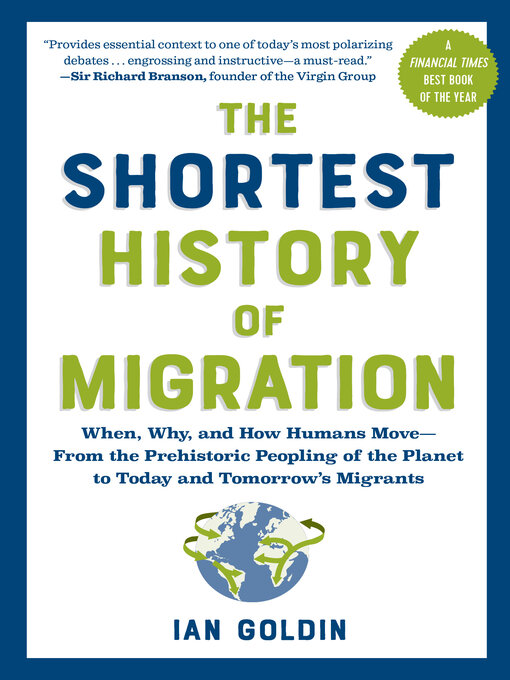From the Silk Roads to the Berlin Wall, discover the globe-turning history of human migration.
"Provides essential context to one of today's most polarizing debates . . . engrossing and instructive—a must-read."—Sir Richard Branson, founder of the Virgin Group
We are a species in motion—from the first steps of Homo sapiens across Africa to America's "melting pot." And when we move—in search of better things, or against our will—our beliefs and skills clash and combine, reshaping society time and again.
In this visionary Shortest History of Migration, Ian Goldin uncovers key moments of cultural exchange while carefully examining empire, slavery, and war. Throughout, we meet famous explorers (Zheng He), exiles (Pablo Neruda), and everyday people in extraordinary circumstances: a Jewish man saved by the Kindertransport, a Japanese gardener who blossomed in Mexico City.
Today, freedom of movement is being curtailed, even as climate change and conflict mobilize people everywhere around the world. Goldin reminds us that passports at every border are a modern invention (he traces the "birth of big brother" to World War I), revealing the folly of trying to halt migration—and proposing commonsense policy instead.
A gripping chronicle of want and wanderlust, this is a moving portrait of humanity—in every sense of the word.
The Shortest History books deliver thousands of years of history in one riveting, fast-paced read.



